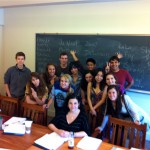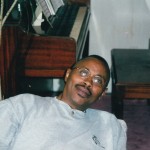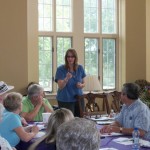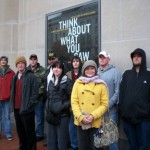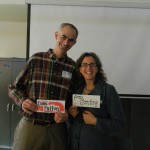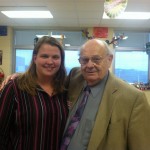“Beautiful, Messy, and Hard Fought”
Forums › 2023 Summer Seminar › Becoming a Holocaust Educator 2023 Summer Seminar Responses: due JUNE 18 (or earlier) › “Beautiful, Messy, and Hard Fought”
-
AuthorPosts
-
-
June 18, 2023 at 12:07 am #31875
I truly enjoyed so many snippets, or gems, throughout this collection. In the first chapter, “Teaching in the Trenches,” the conclusion really resonated with me. “Teachers are rarely given opportunities to develop their rationale or understand how different courses that students take might relate.” This seemingly straightforward statement sits pretty monumental in my personal teaching sphere. On one hand, my rural school advantage is that I am the middle school English department, so I am the only English teacher these students will have. K know exactly what they have been exposed to in terms of background knowledge, etc. This advantage allows me to build and give them a gradual release into Holocaust literature. However, as the department, I am a lonely island many days. I don’t feel as if I have a team to help educate and expose students from different angles or perspectives. The one they get is my own, and I often fear that it isn’t sufficient.
This fear leads to my second section, “Teaching for Humanity.” In this chapter surrounding a difficult and worrisome seventh grade class, the teacher does what we all have done: asks a seemingly benign question and gets much more in return than what she anticipated. The next step she takes really resonated with me. “This would be the easiest approach. My teaching philosophy, however, holds me to a higher standard than simply teaching the subject matter or raising test scores. I am teaching people, and they are teaching me. Together, we are forging the path that will determine the course of our society.” Instead of brushing past her newfound knowledge of the undercurrents of her students’ environment, Wendy actively searches for a way to allow her students to look in a mirror and understand their own roles in the environment they’ve helped to create. She speaks of the fear and knowledge we have in education: “the work we do changes the world.” It is why education is always the first target when enacting control.
The last chapter I feel resonates with me deeply is “Beautiful, Messy, and Hard Fought.” I teach in North Dakota, and this year’s legislative session was a real let-down for public education. Bills being introduced included extensive book banning and censorship on the grounds that public education should not be exposing minors to text that “could be” seen as racy, sexual, violent, or essentially controversial. Great fears involving hot topics such as “sex trafficking” were aligned with supposed books on public library shelves, so the fear has spread unchecked. As our school librarian as well as ELA teacher, I have a fear that many books will be challenged by parents based on this instilled fear and we will have no backbone to fight from. In this chapter of the book, I felt for the teacher who was suddenly blindsided by “power of the majority.” I also felt with this teacher when they wondered if they were making staying in this profession more difficult for fellow teachers by fighting back. We are in a targeted profession, and it is often exhausting to fight those in power—yet we do.
-
-
AuthorPosts
- You must be logged in to reply to this topic.
Recent Replies
Recently Active
-
Active 16 minutes ago
-
Active 19 minutes ago
-
Active 1 hour, 52 minutes ago
-
Active 23 hours, 17 minutes ago
-
Active 1 day, 4 hours ago
- View All Members

